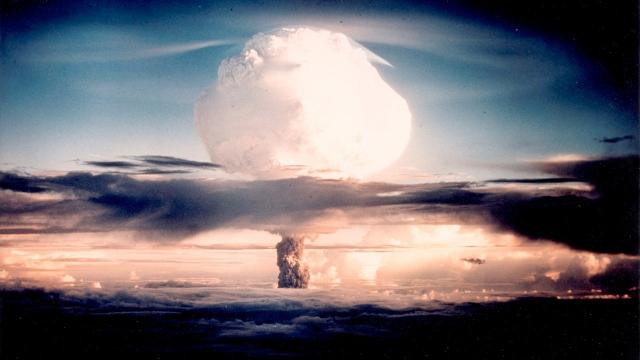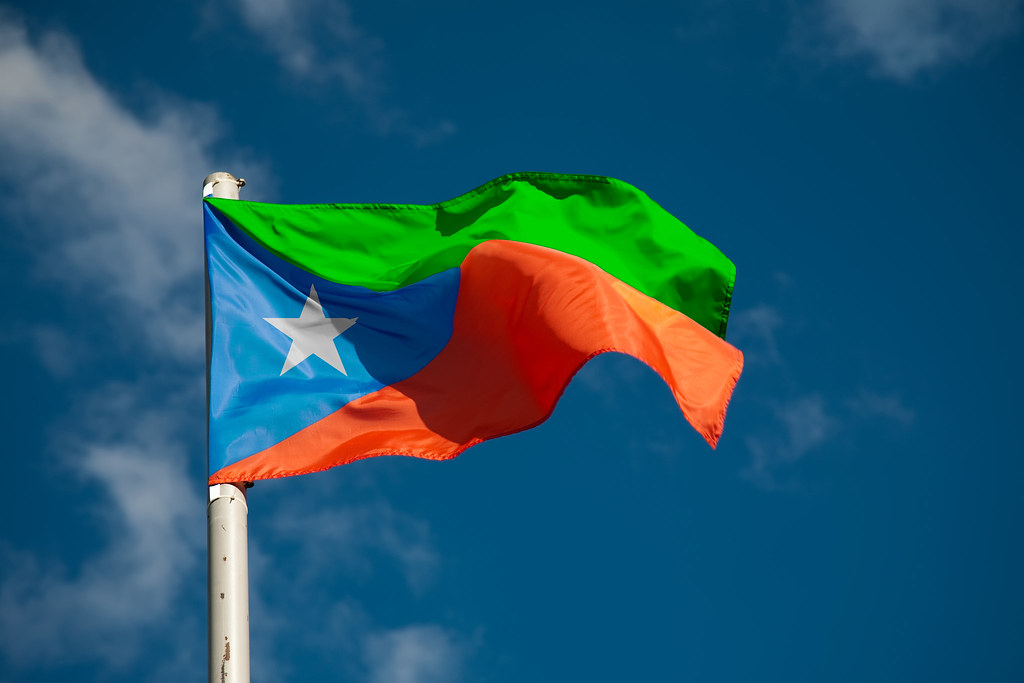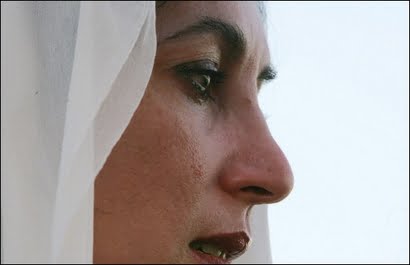The Finale of the Indian Front
The situation for Pakistan was worsening. Unlike their allies in the Concordat, the Indians and the Chinese were continuing their advance through to Islamabad. As they huddled in their bunkers, Bhutto and her military leadership were confused and desperate about the situation at hand.
On the one hand, the Pakistani Army had achieved a smashing success against the Chinese, bludgeoning their coastal advance thanks to superior numbers and the correct timing of their reserves. It was a victory of massive proportions. The Chinese lost their cadre of their best and most experienced soldiers to the remains of the Pakistani Army. It was an unexpected defeat which left Nanking reeling. Some predicted that it would be a generational struggle for China to recover their best and brightest died on the shores of the Indian ocean.
However, the Indian Army had broken through, into a large pocket of resistance, and was now racing to Islamabad. To make things worse, intelligence reported that Afghanistan was prepared to enter the war at any moment. At the moment, they had cut off all communication and supplies with the country. While more resources came from Persia (and possibly by sea), her country did not need more logistical challenges.
Pakistan’s reserves were exhausted and its counter-offensive ability had been spent in the south. While the quality of India’s troops was suspect (many reserves were from former East Pakistan, and generally unwilling to die for India), they at least had fresh troops coming in. Moreover, the generals did not believe that there were any natural defensive lines that could be established for the defense of their nation. With Islamabad already near the front, and with Afghanistan to their backs, it did not look like a prolonged guerilla war would be possible. To add on to their problems, whispers were occurring that Balochi leaders were considering the idea of surrendering en-masse or defecting. If so, that would cut off their link to Persia.
Bhutto knew that the table needed to be reset in a way that would give India enough pause for conditions to improve elsewhere on the front. Only one option was left to save their country: Go Nuclear. Bhutto’s Chief of the Air Force, recommended a nuclear strike deep in Indian territory, as a deterrent to any further advances. Contrary to intelligence reports in India, Pakistan’s nuclear weapons program was nowhere close to making a working bomb of their own. They had yet to enrich their supplies of uranium enough to create a working bomb. (Theoretically they could have created dirty bombs, but this was definitely less effective than even a small nuclear bomb, both in terms of giving their enemy a blow to morale and in terms of actual damage.) Though there was of course, other means to get a bomb. Pakistan had illicitly obtained two small nuclear missiles, both having yields comparable to the bomb dropped in Hiroshima. They were obtained from the Timurid Empire and the Russian Republic of Siberia a couple of years prior. During the civil war, protection of nuclear silos, normally top-of-the-line, were reduced as troops were transferred for fighting rival factions. The withdrawal of nearly half of America’s peacekeeping force did not help in this regard. As security was tight, many missiles were left unaccounted for, the last estimates placing the number at almost five, although most of the missing bombs were likely not in working condition. Pakistan’s own attempts to build a bomb had reached a roadblock, but they had the infrastructure to launch the long-range missile itself. Bhutto thought that by bluffing with a nuclear strike deep within Indian territory, the nation would sue for peace for fear of nuclear annihilation: Granted, a peace far more advantageous to India than Pakistan, but one where Pakistan still existed. The blood of millions of civilians would be in her hands, but it was better than nothing.
Military strategists reasoned that Bangalore, a city deep in the south of India, would be hit. It was not heavily guarded by any anti-missile defense tech, (although Pakistani intelligence was confident India did not have ‘Star Trek’ technology like the type the United States famously used to stop a Soviet missile from reaching the mainland). In addition, it had among the lowest Muslim populations of any major city in India; gruesome criteria to be fair, but one that was considered essential for those involved in the decision-making.
The Chief of the Navy, Fasih Bokhari, objected to the strike, saying it would only make Pakistan an international pariah and trigger the breaking of the nuclear taboo, the final taboo adhered to in war. However, Bhutto felt that something bold had to be done, as defeat was ensured. She was also paranoid that not only would Muslim Pakistan be falling to India, but that a democratic Pakistan would be collapsing under the weight of an autocratic, undemocratic and dangerous Indian regime that would treat Pakistanis as second-class citizens. She could only hope that exile would be her fate. As such, Bhutto ordered the Navy Chief Fasih Bokhari, to be sacked immediately, and the launch to be scheduled in two hours, at 9 P.M., Indian Standard Time. Meanwhile, she would prepare a speech to the world outlining her demands for an immediate ceasefire and peace talks. There was no going back now.
The die was cast.
However, there was one problem: the Pakistanis had been swindled. Their warhead's detonator was nothing more than a cheaply made fake. They had nuclear material, but no way to detonate. The missile landed in the Bangalore Hilton, destroying the structure because of the impact of its landing, but failing to do much more. Despite that, hundreds died from the impact alone. Unfortunately for the Pakistanis, a prerecorded speech had been broadcast at the time that the detonation was supposed to have happened, so the world now knew of Bhutto’s scheme. She simultaneously revealed her willingness to break the nuclear taboo and her ineffectual. It was time for the Indians to respond.
Sanjay Gandhi was livid.
He came to the realization that the Pakistani front had to be finished before Pakistan had the ability to respond with an actual bomb. His intelligence still pointed to the conclusion that the Pakistanis weren’t actually that far off from making a bomb of their own. First, he asked his generals to come up with a list of Pakistani cities worth nuking in return. His generals were surprised by the notion of a retaliatory strike, given that they did not know how many nuclear devices Pakistan had, even though they knew it evidently did have at least one more. Some were rumored to be held in Karachi, but they were not sure. However, it was decided, in case Pakistan had any more WMD’s, that India would have to reply tit-for-tat. A small warhead, if a nuclear warhead can really be described as small, would be dropped on Islamabad. Much of the Cabinet protested, believing that a nuclear strike would swindle India’s opportunity to be the bigger man in the international field. However, Gandhi was too furious at the escalation by the Pakistanis, and also felt that he needed to assert authority over his cabinet. Moreover, he believed a nuclear strike could get France to the negotiating table, and bring an end to the war without the Indians having to slog through Africa. A strong and sudden move would provide a strong hand when it came to negotiating. The bomb of choice for this mission, no larger than that dropped on Hiroshima, would devastate the Pakistani capital, without destroying the Pakistani ability to surrender. After making an impassioned speech to his cabinet, Gandhi telephoned Afghanistan immediately, asking them to agree to begin their offensive and enter the war formally the next day, bringing the date two weeks in advance. No bombing was mentioned.
---
The next morning, an upgraded MiG-23 bomber, under heavy fighter escort, lit the city with the fire of a thousand suns lit up over Islamabad, destroying the Pakistani political, industrial, air, and communications base. While Bhutto and the highest echelons of the cabinet survived, most of the mid-level army and air force officials died in the blast. Pakistan’s entire intelligence network was also destroyed. Moreover, the strike was a complete shock to the system. Despite the fact that air raid drills were common in the city, it would be no use when it came to a nuclear blast. Most shelters within a close radius were not able to withstand the blast. Thousands would die from radiation poisoning in the following weeks to come. A level of destruction never seen before in over 50 years came back for a final encore.

What became clear was that under the chafe of the war, secessionist sentiment was high, especially to the far west. After the end of the Third World War, Pakistan had annexed ethnic Baloch areas of Iran, making it larger, and thus, more over-extended than before. As had happened with Gujarat, the Pakistanis were not effective at quelling rebellion in the region, and this became even more true now that much of the nation’s central hub was devastated. Balochi leaders, in the wake of the chaos, realized this was the perfect opportunity to achieve independence from Islamabad. For Balochs, their nation was finally united, if under the yoke of another country. But with the increasing instability caused by the unspeakable events in Islamabad, the time was right for rebellion. They started out by seizing key government buildings and TV and radio stations, declaring the creation of a sovereign State of Balochistan. These Balochi leaders, led by the local politician-turned-rebel Akhtar Mengal were “allowed” to take control by local Pakistani officials. Many of them felt that a new independent Balochistan would be the only way to achieve self-governance for their territory, even if it was likely as a puppet to the Dual Pact of the Chinese and Indians. This was supported by the swelling of the Balochi population by refugees fleeing Indian forces. They also declared their temporary allegiance to the Dual Pact while announcing long term goals of neutrality after the war was over.

The New Flag of Balochistan
At this point, Afghanistan finally entered the war, using the lack of communication between the Pakistani army units scattered around the country and easily take over the border city of Peshawar. After consolidating their reign on the city, the Afghan army was left with virtually no obstacles. They reached the still-smoking ruins of what was once Islamabad barely a week later. They joined the armies of the Dual Alliance, surrounding the former capital city from three sides.
Benazir Bhutto fled to neutral Persia in a self-imposed exile the following day. The same day, the Chief of the Pakistan Air Force was found dead from a self-inflicted bullet to the head. Pakistani General Ashfaq P. Kayani, though not one of the highest ranking members of the Pakistani army, took control after an informal coup.
In the following week, the Indian army made massive advances. Only four days after the counter-strike on Islamabad, Lahore was seized after naval landings from (mostly Indian) and Chinese forces. The Chinese efforts in the south were still stalled thanks to dogged resistance from tribal areas near its borders. However, coordination among the Pakistani forces was breaking down quickly, and with the main transport hub of the country knocked out, they couldn’t get supplies to the front. What roads were available were clogged with refugees fleeing Islamabad and mass surrenders. The Dual Pact finally broke through to Karachi a week after the bombing of Islamabad. 3 hours later, the new provisional junta of Pakistan surrendered. While there was still fighting going on in Southern Africa and on the Libyan front, the brunt of the fighting was now over.




